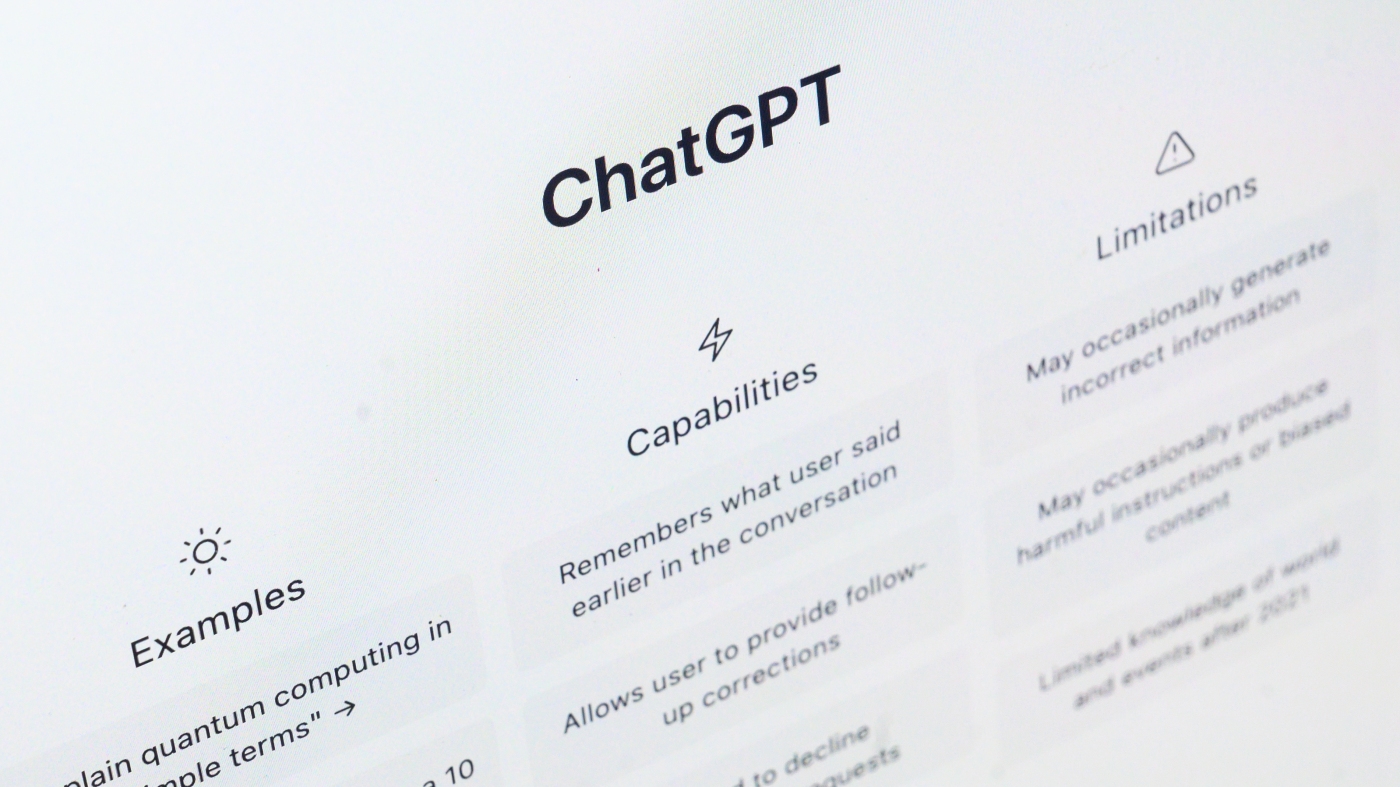In this photo illustration, the home page for OpenAI’s ChatGPT app is displayed on a laptop screen on Feb. 3, 2023. This week, OpenAI said it used its own AI models to detect covert influence operations.
Leon Neal/Getty Images Europe
hide caption
toggle caption
Leon Neal/Getty Images Europe
OpenAI says it banned a cluster of ChatGPT accounts after finding evidence that users were linked to an Iranian group attempting to sow division among U.S. voters.
In a statement on Friday, OpenAI said it discovered online articles and social media comments that were created with the help of ChatGPT. The content did not get much reach — but focused on a number of divisive issues including the U.S. presidential election, Israel’s war in Gaza, and Israel’s presence at the Olympic Games. The AI-generated materials catered to both progressive and conservative audiences.
“This operation does not appear to have achieved meaningful audience engagement. The majority of social media posts that we identified received few or no likes, shares, or comments,” OpenAI said.
The investigation found AI-generated long-form articles were published on websites posing to be news outlets. Meanwhile, OpenAI said the now-banned accounts composed social media comments — both in English and Spanish — by asking ChatGPT to rewrite comments already posted by other social media users.
“They interspersed their political content with comments about fashion and beauty, possibly to appear more authentic or in an attempt to build a following,” the company said.
OpenAI’s internal investigation comes a week after Microsoft’s Threat Analysis Center report, which showed how groups connected to the Iranian government were using a spectrum of online tactics in an attempt to meddle in the U.S. presidential election.
A day after Microsoft issued the report, Donald Trump’s presidential campaign said it was hacked and accused Iranian actors of stealing sensitive internal documents. The campaign did not provide specific evidence. On Wednesday, the Google Threat Analysis Group said it detected and disrupted a phishing operation by Iranian hackers to target both the Trump and Biden-Harris campaigns.
What’s the motive behind the Iranian-linked operation?
OpenAI said the accounts were linked to a covert operation known as Storm-2035. Last week, Microsoft researchers found that the same group was behind four websites pretending to be American news outlets.
The fake sites amplified polarizing messaging on hot-button issues related to LGBTQ rights and the Israel-Hamas conflict. The goal is to incite chaos and stir polarization among American voters ahead of Election Day, according to Clint Watts, the general manager at Microsoft’s Threat Analysis Center.
“Iran is focused as much on just breaking the ability of an election to occur,” Watts told NPR last week.
Both Microsoft and OpenAI reported that the websites and the AI-generated content did not garner many page views or much online engagement.



